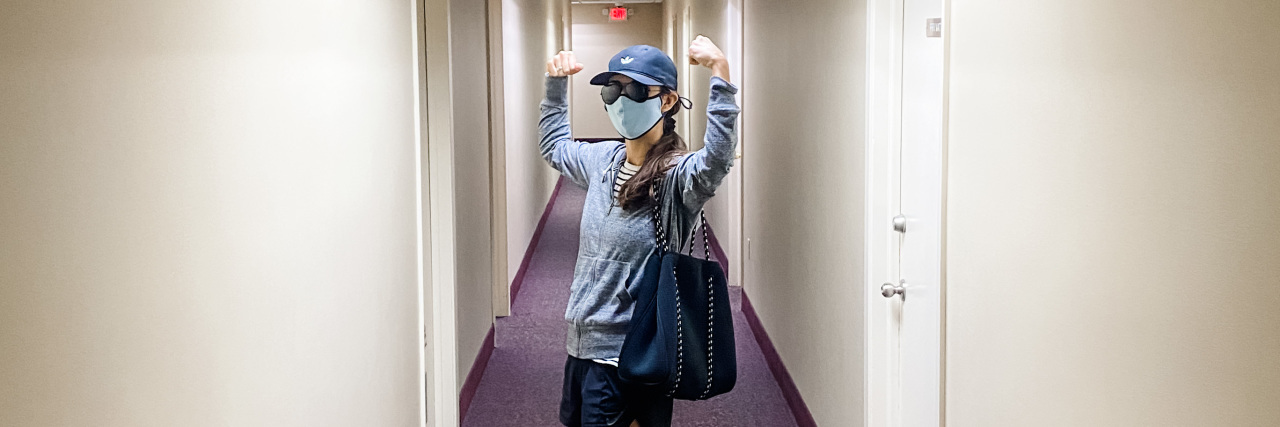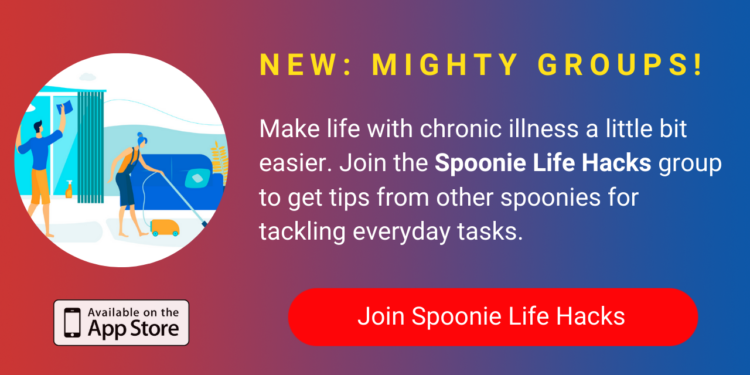Throughout my 20s, I’ve spent countless hours grappling with the “why?” as it relates to my life of chronic illness.
I have sought understanding, reason or clarity about the factors that may have led to my situation through as many different resources as I can get my hands on. This has included everything from journaling to CBT (cognitive behavioral therapy), health coaching, countless specialists, hypnotherapy, personal development books, self-improvement courses, meditation, podcasts — the list goes on and on.
It has been hard, really hard, to experience continuous decline in my physical health while simultaneously expending tremendous daily effort to better manage and improve my chronic conditions. I have endeavored to be committed to doing everything I can in the “right way” to support my healing — from eating nutrient rich foods to hydrating well to practicing breath-work and gentle yoga, to diligently following treatment protocols to focusing on sleep hygiene.
Doing all of the “right,” responsible things and still experiencing unrelenting, chronic, intense, physical pain has been challenging both physically and mentally.
When I am doing my absolute best and things don’t improve, it’s easy for my mind to go to that dark, unproductive place where it asks, did I do something to “deserve” this? Or I ask myself, “Where did I go wrong?; What am I doing wrong now?”
For the first 20 years of my life, I became used to equating effort with outcome. I believed and trusted that if I worked hard enough, I could achieve nearly any goal I set for myself. However, chronic illness completely flipped this paradigm upside down. The frustration, disappointment and confusion around expending so much energy “fixing” my health issues — and not being able to do so — became fuel for the voice of my inner critic; a voice quick to point the finger and “blame” me for lack of progress or improvement.
I now know that those thoughts of blame and fault are just that; thoughts. Thoughts are not facts. Thoughts are impermanent; they are just things we can choose to allow to float by or latch onto as truths.
I learned that along with letting go of thoughts of blame, I could choose to hold tightly to supportive sentiments rooted in self-compassion and gentle acceptance. I realized that it was, and still is, within my power to recognize that there is nothing I did to “deserve” the health challenges I have been through and am going through.
When I gained enough self-awareness around these narratives to recognize their thought patterns in my mind; it became easier for me to spot when I was getting lost in them and going down into that rabbit-hole of guilt. I discovered that changing my relationship to these thoughts would be a lifelong practice, but one that would be well worth the time and effort I put into it.
As I accepted this new way of viewing my thoughts, I was able to let go of the idea that I would wake up one morning having “arrived” at a place where I would never again experience anxiety about my role in the pace of my healing. I came to see that such a place did not exist.
So, instead of focusing on silencing the voice of my inner critic, I started to pour my efforts into strengthening the voice of my “higher self”; that part of my mind that is compassionate, accepting, courageous, brave, hopeful and joyful. I accepted that the negative thoughts would come, and that I could watch them go, while actively working to replace them with the positive input from my kinder, wiser, “inner-cheerleader”.
As I continue to fight for improved well-being and less pain through a variety of different treatments, I’ve also self-prescribed a steady dose of relentless kindness.
I’ve realized that by being committed to nurturing a headspace that is gentle and encouraging, I can enhance the effectiveness of all of the other work I am doing to manage my chronic conditions.
Not only does fostering a positive mindset have the potential to boost the efficacy of these treatments; it also allows me to directly steer the part of my healing that can make my soul happier and more content — no matter how the treatments play out or how my physical health unfolds.
Even if I’m not improving physically in the ways I’d like to be (or as quickly as I’d like), I can take comfort in knowing that I am growing in my ability to handle my circumstances, whatever they may be, with more grace and ease.
Even inside of chronic unrelenting pain, I can make sure the people I love know how much they mean to me. I can practice gratitude daily; a “mind muscle” that quite literally grows stronger over time, and shifts the lens through which I see the world. I can work to improve my communication skills and boundaries so that I am protecting myself energetically and supporting my healing goals. I can share my experience to help others. I can resolutely refuse to let the pain I have experienced, and am experiencing, turn me into a more bitter version of myself; and instead choose, over and over again, to find love, right where I am.
It took me several years of steady decline and intense struggle before I was able to crack the door open to this type of mindset, and catch a glimpse of its first sliver of light peeking out into the dark hallway in which I felt so, so stuck.
Since then, little by little, I’ve been able to open that door wider and wider. It’s brought fresh air and deep breaths into the darkness that used to feel unbearable. It hasn’t “cured” my chronic conditions or taken away my pain; but it has changed the way I carry pain — a life skill that I know will serve me far beyond managing my health.
I hope that if you find yourself in the early stages of coping with chronic illness, this concept and these words can allow a teeny bit of light to find its way into the overwhelming darkness that can envelope you inside of this type of pain.
I hope you will be motivated, to at least consider, what it might be like to offer yourself compassion, instead of blame, around what you are experiencing.
I hope that you to will be able to shift your thoughts, and ultimately, your mindset, so that it becomes your strongest ally; one that actively releases thoughts that do not serve you (i.e. “I deserve this pain for some reason”) and replaces them with thoughts that do support you (i.e.: “I love and accept myself exactly as I am; this is tough but I am tougher; I promise myself to love my life more than I hate my pain”…).
I truly believe that if we are open to it, the pain of chronic illness can be used as fuel to shape us into a stronger version of ourselves.
As one of my all time favorite teachers and writers, Glennon Doyle, often says — “first the pain, then the waiting, then the rising”.
Trust that with time, you will find ways to rise above the pain that feels like it has broken you. Trust that from all of the shattered pieces lying in beneath you on the floor; you can learn and choose to build a softer, more loving, version of you.
Know that if you’re reading these words and find yourself completely consumed by “the pain”…
or stuck in the lonely confusion of “the waiting”
…your “rising” is coming.
Follow this journey on Mindful Migraine.


